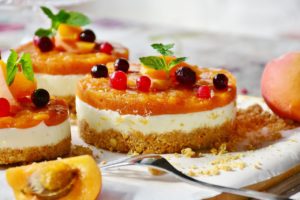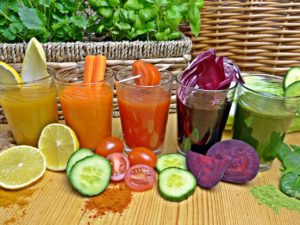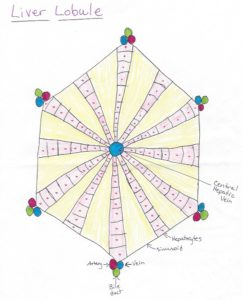Special Episode #2: Food & Blood Sugar

Blood Sugar Basics
Your blood sugar affects how tired you are, your productivity, and your moods. This is 1000x more true for those with diabetes.
Hypoglycemia = Low blood sugar
3 main energy sources in your food
Carbohydrates are some complex form of sugar that your body can turn into glucose very quickly. Glucose is the main form of sugar that your body uses for energy. Because your liver is very efficient in this process, you can get a blood sugar spike (sugar high) and then you crash after it’s over. Insulin is the key to the door to let the glucose in your cells.
Fats can be turned into sugar by your liver is your glucose stores are depleted. So, this can affect your blood sugar levels, although it’s less of an impact that carbohydrates. Insulin has another job – fat storage. If there’s a lot of fat, the insulin is being used up storing fat rather than allowing glucose into cells.
Proteins are promoted as a counterbalance to the carbs. It causes a traffic jam in the absorption and metabolism processes that allows the sugars into the blood stream much slower. The liver does have a process called gluconeogenesis (the creation of new sugar) where it can make sugar out of protein, but it’s a last resort.
Other things in your food
There is some evidence that shows caffeine causes temporary insulin resistance while it’s in the body. You still get an “energized” feeling b/c caffeine increases the heart rate but the energy usage is not very efficient because the glucose is not being used well.
Alcohol can drop your blood sugar initially, especially if it’s consumed on an empty stomach. When the liver is steadily detoxing the alcohol out of your bloodstream, the replenishment of the glucose supply slows down. This contributes to what make you feel sleepy after drinking alcohol. On the flip side, it will increase your blood sugar because 1) alcohol is usually mixed in a sugary drink (i.e. cocktails) and 2) alcohol is distilled from “high carb” sources (grapes, wheat, barley, rye, corn, etc).
Any changes to eating habits need to be exactly that – new habits. It can’t just be a program that you do once without permanent change. If you’re cutting out all or most of one of the 3 main energy sources, you have to make sure you keep up with your caloric needs.
Calorie Math
1 g of Fat = 9 calories
1 g of Carb = 4 calories
1 g of Protein = 3 calories
Calories are calories when it comes it energy, so the other nutrients from your foods are a more important to consider when choosing what to eat.
There are lots of things your body would have to adjust to when changing eating habits (digestion adjustments, for one) and 30 days may not be enough to get it “normalized”.
JDRF
The Nashville chapter of JDRF is having their annual One Walk on September 24th. Friend of the show and previous guest, Rachel Mayo has been #T1D for over 10 years and she is passionate about the cutting edge research and support JDRF provides for people and their families. Her goal is for her team to raise $5000, you can contribute!
Connect with me
Support us on Patreon
*NEW* Join the Pharmacist Answers Podcast Community on Facebook
Subscribe: iTunes, Stitcher, GooglePlay, TuneIn Radio
Music Credit: “Radio Martini” Kevin MacLeod (incompetech.com) Licensed under Creative Commons: By Attribution 3.0 http://creativecommons.org/licenses/by/3.0/


